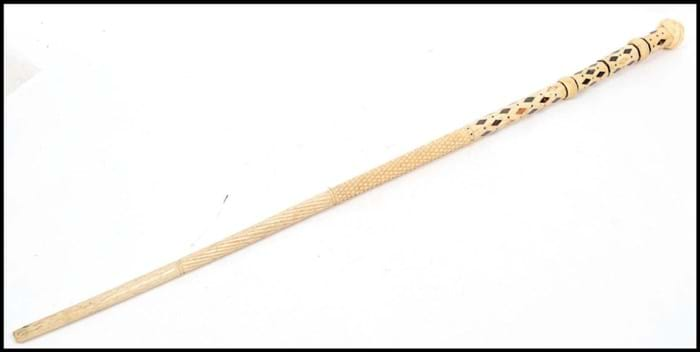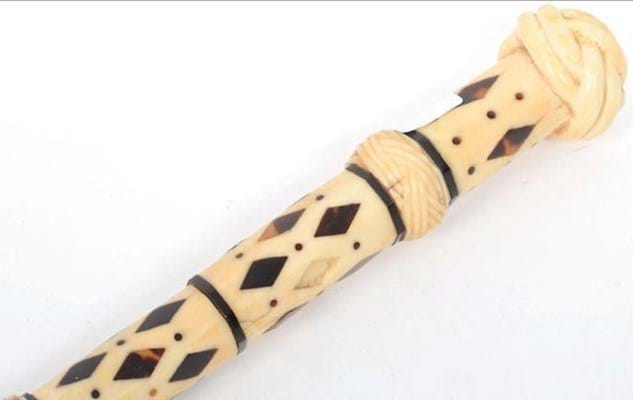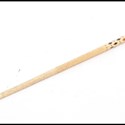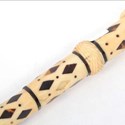The walking cane had been bought by the local vendor in the 1980s for just £20.
Canes of this type, typically worked from the jawbone of a whale by American and European sailors to be sold to natural history-curious Victorians in the port cities, come in many different guises. Many now appeal beyond the cane collecting community and into the folk art world.
This example was relatively sophisticated: carved to the shaft with a spiralling and crosshatching, the upper section was inlaid with tortoiseshell diamonds with the marine ivory pommel carved as a Turk’s head knot.
The price reflects the sustained popularity of whaling canes both in the UK and in North America but is by no means a record for a mariner’s cane sold in the UK.
Warwickshire saleroom Bigwood of Teddington, Stratford-on-Avon, sold another whalebone cane of a more developed form for £27,000 in 2013.
In August 2012, Perry and Phillips, auctioneers in Bridgnorth, Shropshire, sold a cane richly inlaid (perhaps by a whaler from New Bedford, Massachusetts) with tortoiseshell pictorial scenes including an eagle, stars, whales and a whaleboat for £46,000.


















